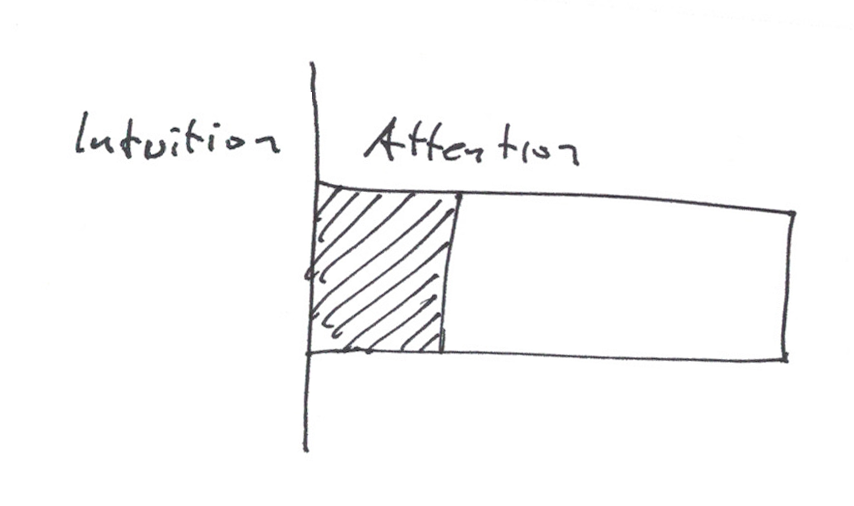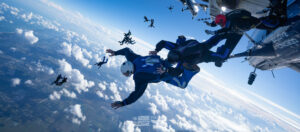When skydivers meet each other and are going to make a jump together, they need to quickly assess their relative experience and skill level. This can be critical information, as one of the biggest dangers in skydiving is usually the other people in the sky. The fastest way to find out someone’s skill level is to ask them how many jumps they have. There is a better measure of relative skill, however, but it is only available after a completed skydive: who noticed more. The person who noticed more is the better skydiver, because they had more attention available during the jump..
Story Time:
About ten years ago a new jumper showed up at my dropzone. Paul had recently moved to Boston and said he had a couple of thousand skydives. He wasn’t very imposing, but would offer suggestions. When someone eventually asked where he had learned a particular skill, he mentioned that he had competed for his home country at world championships several times.
Over the years I have come to see Paul as one of the best skydivers I know. This is not because of his competition experience, or his world records, or because he is invited to participate in some very difficult skydiving events. Paul is the best skydiver I know because when we land from a jump he can tell you everything that each person had done from the moment we exited the plane until we broke off. Other people will watch a video of a skydive, but he saw it all in real time. When other skydivers are concentrating on a particular body position or move they have to make, Paul is flying intuitively, and has attention span left over to see everyone else.
We all have a limited amount of attention. Regardless of the activity, sport, or task, there is only so much we can concentrate on at a time. If a task is important or requires some creativity it will occupy a lot of our attention. As tasks become rote, however, they require less of our focus and we can spend our attention on other tasks.
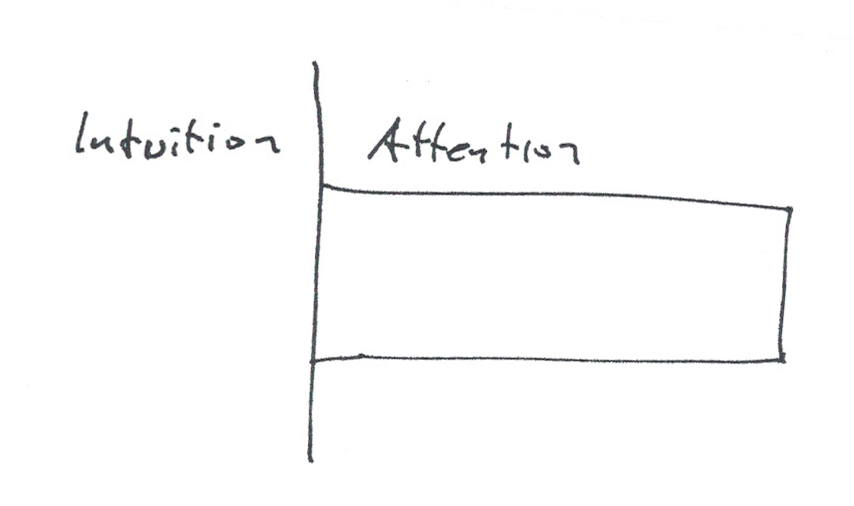
Our attention span is limited
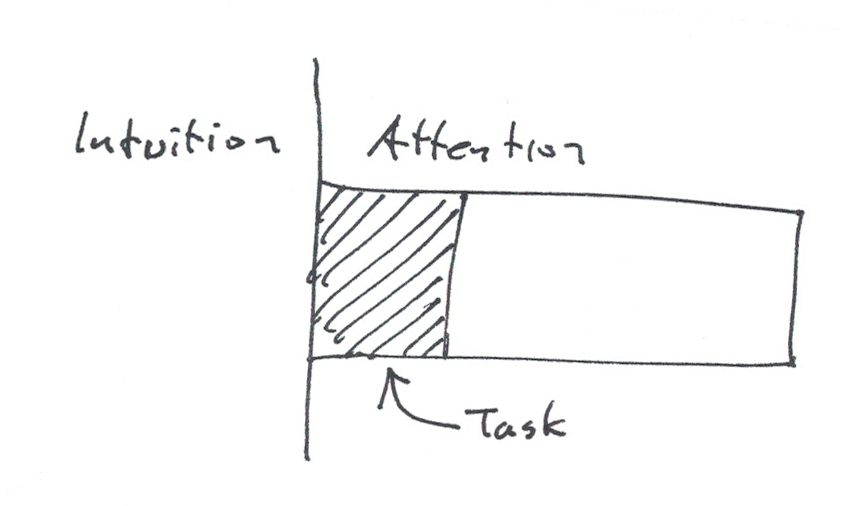
Each task we are trying to accomplish uses some attention
Think back to when you were learning to drive. Every part of operating a car was new to you and required focus. Changing radio stations while you were driving was probably more than you could handle. Over time and with experience, you discovered that you don’t have to think about how hard to press on the accelerator or brake pedal, you just did it. This is a critical skill to develop to the point where it is intuitive, so that when an emergency happens in front of you your focus is on how to avoid it, not on which pedal to press.

Learning is the process of moving tasks from our attention…
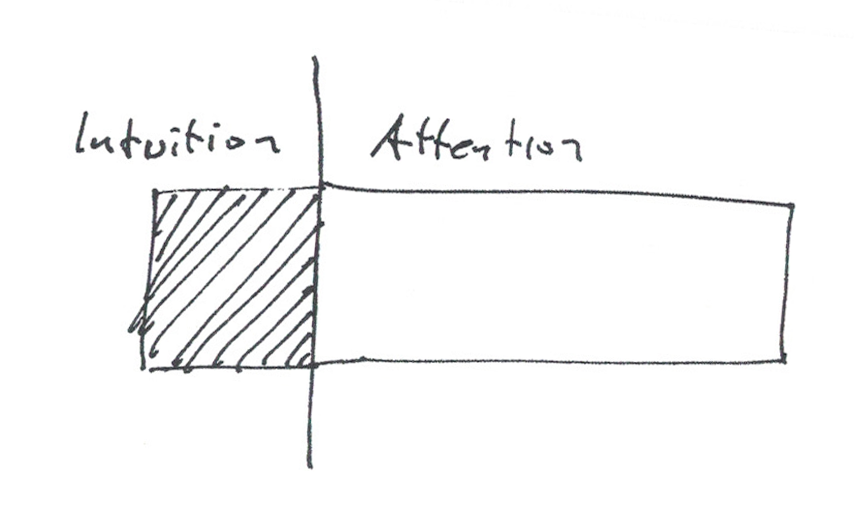
…to our intuition, leaving room for more tasks.
The process of learning any skill is the process of moving it from requiring your attention to being able to do it intuitively. What drew me to skydiving was how much of my attention was occupied with the experience, and the drive to be able to learn and perform in such an environment. Eventually even the experience of exiting an airplane several miles off the ground moves from the area of your mind requiring attention. The result is that you have more attention available for other skills and observations.
There are a number of implications to this approach to learning and attention. I’ll go over some of these in future posts about skill building and bad habits. One clear implication is that for anyone who plans on learning in the sport, skydiving is not an adrenaline activity. In fact, adrenaline shrinks the amount of attention we have to apply to other tasks and skill building.
